By Beatrice Tridimas
After conducting some market research we found out that price is a primary reason for buyers choosing to shop at less-responsible high street or e-comms brands rather than sustainable labels.
We want to show you that buying responsibly doesn’t have to take a toll on your pocket.
Rental and second-hand clothing is a sure way to stick to a budget whilst being eco-conscious, but even for those of you who like to buy new, sustainable pieces don’t need to cost more than your regular purchases.
Reality or Perception?
In a recent survey 20.4% of respondents answered that they did not buy sustainable clothing because they thought it was more expensive. Of this number, 95% said they shopped at e-comms or high street brands, typically understood to be cheaper.
Of those who shopped at e-comms and high street brands and believed that sustainable fashion was too expensive, 70% shopped regularly (from once a week to once a month) and spent a considerable amount (from £15-50 a week to £150-500 a month).
Taking the most popular brands in the survey, we’ve conducted a short comparison demonstrating that you don’t need to outspend your weekly or monthly budget in order to switch to more responsible clothing.
Basics*
*49.5% said they buy basics
Weekday:
Around £40 for a pair of jeans made from 99% organic cotton. The brand clearly lays out how they source their materials and the commitments they have made to be more responsible.
Tip: I’ve bagged jeans from Weekday in the sale for as low as £12!
Topshop:
Also around £40 for a pair of jeans. 99% cotton with no available info about how they source their materials or the commitments they’ve made to their supply chains.
Organic Basics:
£30 for a 100% organic cotton tee. Maybe not as cheap as you’d like for a t-shirt, but these super soft basics – t-shirts, undies and sportswear – will look good as new for years! Organic Basics have transparency down to a T (excuse the pun). You can find exactly where they manufacture their clothing and all of the innovative eco-friendly materials they use.
ASOS:
T-shirts on ASOS can range from anything like £7 to £50. Generally, it was nice to see how many t-shirts on the site were 100% cotton, suggesting that these Tees are made to last. But, only organic cotton is actually beneficial for the environment and you should apply the general rule that the cheaper the T-shirt the less the person who makes it is paid.
The Newest Trends*
*37.9% said they buy the newest trends
Silks and Stars:
Look at local and independent brands for the newest trends. Often handmade, with small and traceable supply chains, small brands can tell you pretty much everything you want to know about the item you’re buying. This milkmaid blouse from Silks and Stars is £28 and you can find out more about how it’s made here.
Pretty Little Thing:
£25, 95% polyester and zero commitments to responsible fashion. PLT is owned by Boohoo Group who have faced numerous allegations of contracting underpaid work forces.
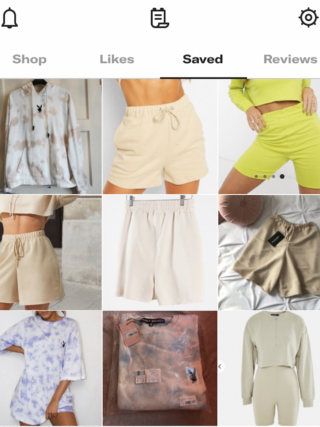
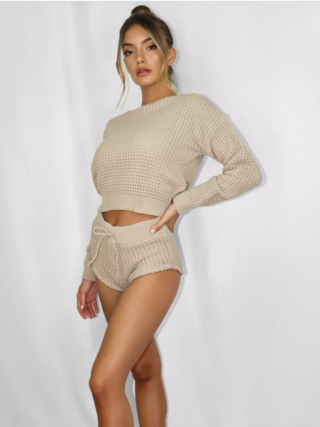
Depop:
You can find people already reselling what they’ve grown tired of whilst it’s still in the shops. Rather than buying fresh off the shelf, you can stop clothes going to waste by buying second hand. You can match the in-store price or barter for cheaper, but you never have to overspend on second hand.
Lockdown fashion has popularised comfy/casual sweats which you can find in most fast fashion stores ranging from £14-£50. Like all fads these clothes are produced as quickly and cheaply as possible and are not made to last!
Tip: tie dye is in but instead of turning to the shops, why not grab an old t-shirt and do it yourself?
Occasion Wear*
*31.1% said they buy occasion wear
Hurr Collective:
You can rent this dress for as little as £26. Renting offers the possibility of having an endless wardrobe. You can replenish your holiday wear before each trip and never worry about your purse.
& Other Stories:
£95 for a 100% linen dress. Not a bad purchase, but if you’re inclined towards buying before each holiday you go on, it’s better for your bank account and the environment to try renting your holiday outfits instead.
Hurr Collective:
You can rent this dress with an original retail price of £230, for only £36! Like holiday wear, if you’re only going to wear it once, you can save money, wardrobe space and waste by renting.
Zara:
£25.99 and 97% polyester. The cheaper the better, if you’re only going to wear it once, but then what happens to it? Renting avoids clothes going to landfill and gives you a great deal on designer clothing.
But What Even Is Sustainable Fashion?
It is also important to know what to look out for when it comes to buying better. 28.8% of respondents thought that sustainable clothing was hard to find, so here are some tips to keep in mind:
Do Your Research
27.2% of respondents said they prioritised ethical labour when buying, putting it fourth behind style, price and quality. However, only 8.7% said they bought from the brands they do because they had fully traceable supply chains.
It’s unlikely that consumers deliberately choose to shop at brands with poor ethics, but rather that they don’t actually know what the brand’s policies are.
See what initiatives your favourite brands are committed to – do they feature on Fashion Revolution’s Transparency Index? Have they joined the Pledge for Circular Fashion? How in keeping are they with targets laid out in the Global Fashion Agenda?
Brands that outline exactly what they’re doing, why their materials are more responsible – perhaps they are recycled, organic or manufactured in certified toxic-free supply chains – are much more trustworthy. Just a little scan over a website to see how much information is available is enough to gage how responsible it really is.
Winning Fabrics
Whether it is swimwear made from plastic bottles or recycled-cashmere socks, clothing made from recycled materials is the best way to reduce waste. You can pretty much find clothing made from anything recycled these days: polyester, denim, cashmere and even recycled leather in footwear or bags.
100% linen. 100% cotton. 100% wool. If it’s 100% it’s not got the added nasties which keep clothing in landfill for hundreds of years. Natural materials will biodegrade. However, it is always good to check how the materials are manufactured and that they are not in fact releasing toxins into the atmosphere throughout their production. Organic or certified cotton is hugely better for the environment and the people who manufacture it than regular cotton, which actually has a negative impact on the environment.
How do you know? Check labels, check the clothing website, look out for any of these symbols or innovative fabrics.
Quality Saves Money
65% of respondents said they prioritise quality when buying clothes, landing it third place behind style and price. But 17.5% of respondents said their clothes weren’t lasting them more than a year or two. The sturdier the material – often the purer materials – the longer it lasts you, the less money you have to spend replacing things and the less clothing you send to landfill. 350,000 tonnes of clothing goes to landfill each year in the UK.
Choose denim that won’t sag at your knees, wool that won’t bobble or tops that won’t fall apart after one wear.
Less is More
The absolute number one way to be an ethical shopper and money conscious is to buy less. The more we consume, the more we reward fashion companies for their poor labour practices or the more clothing we end up sending to landfill.
Changing consumer habits is one of the biggest ways to make a difference. Whether it’s choosing to buy less and waste less or actively supporting brands with full supply chain transparency, how you spend your money makes a difference.
If you’re used to and willing to spend money on your clothing you should start thinking about where that money is going and who or what it’s affecting.
I’ve also got something to take away from this survey. It was HUGELY encouraging to see how many respondents had some inclination towards sustainable fashion. Whilst the majority of persons shopped at high street or e-comms brands, few shopped there exclusively with many also shopping from eco-conscious brands or second-hand and vintage stores.
Furthermore, when I started compiling the facts, I revelled in the number of stores which have introduced new eco-conscious and ethical initiatives and were willing to give full details on what they’re doing.
Change is happening and you can be a part of it!

Beatrice Tridimas
Bea is a content writer and editor based between Hampshire and London. When she’s not diving deep into the ethics of the fashion industry, she’s writing book and theatre reviews with a steaming cuppa to hand. You can keep up to date with her writing projects via her twitter @bea_trid
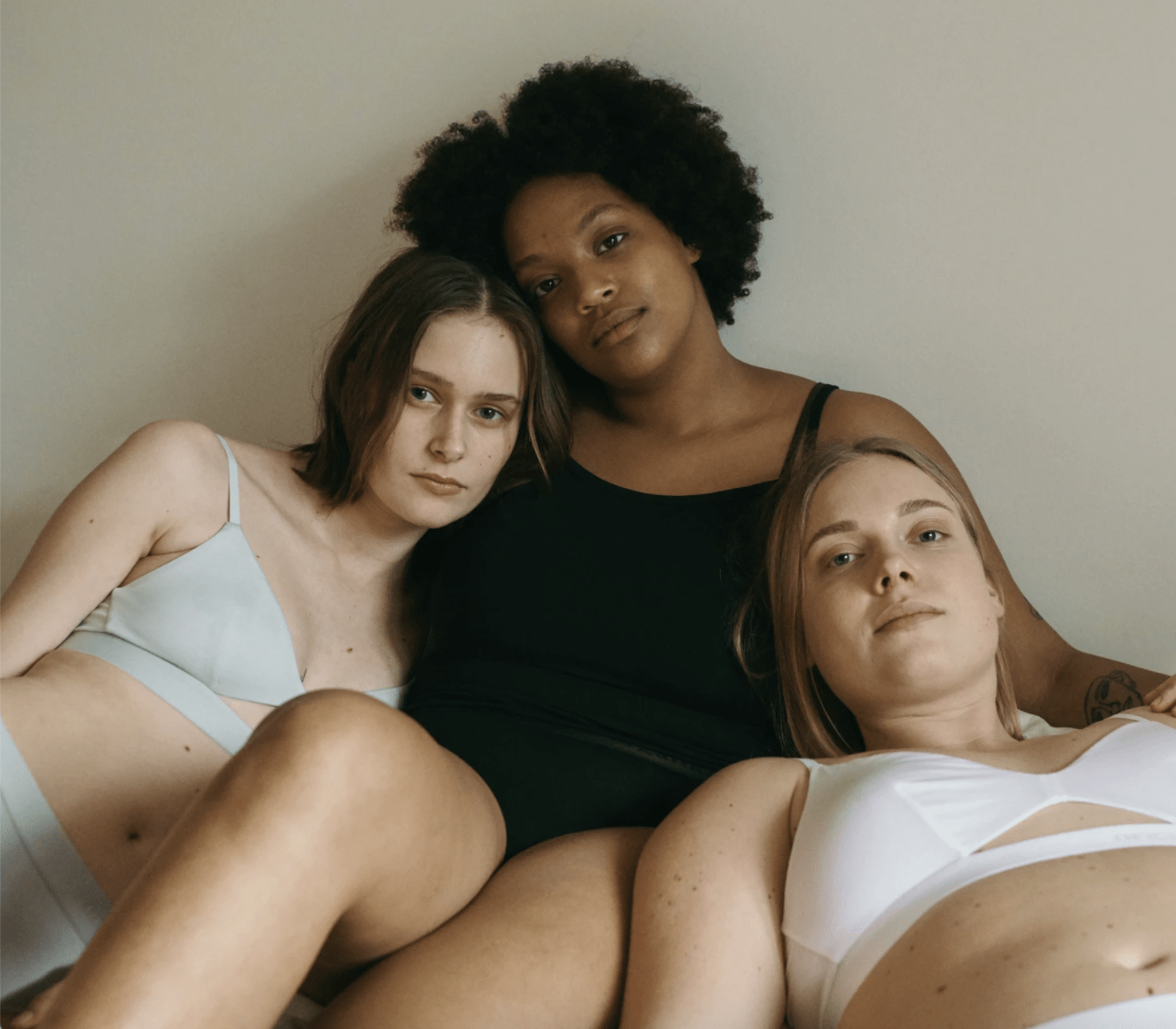
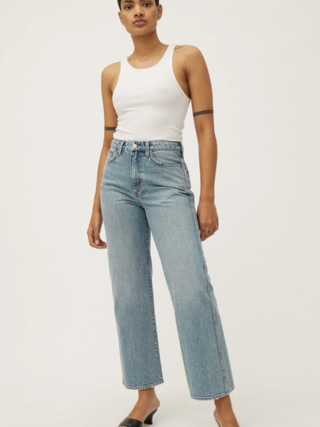
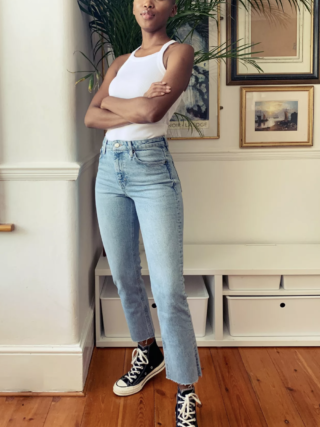
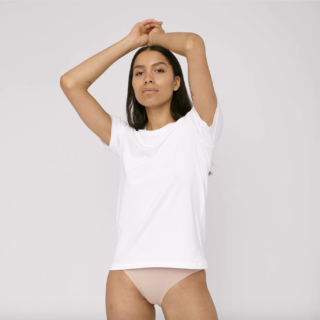
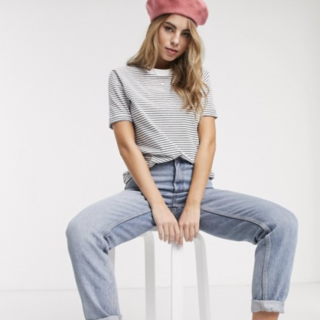
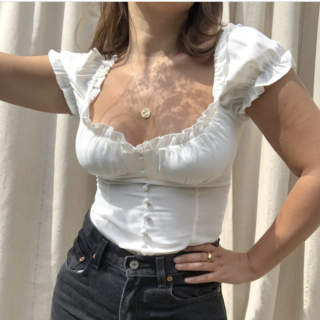
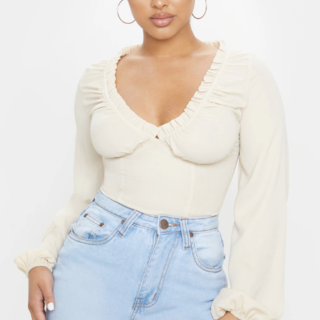
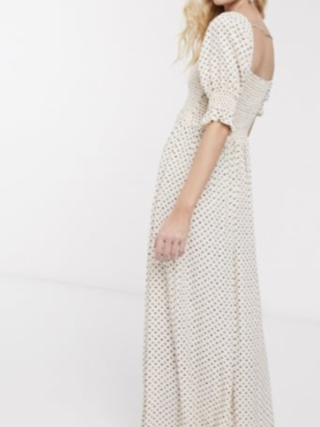
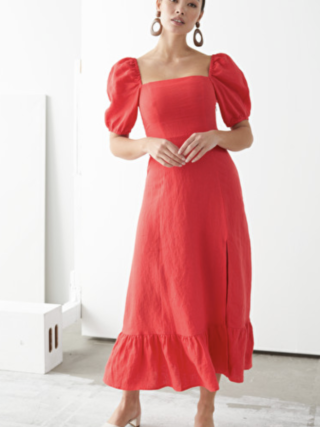
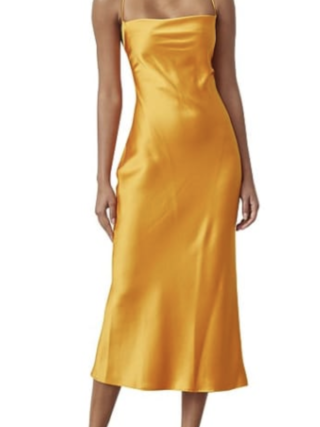
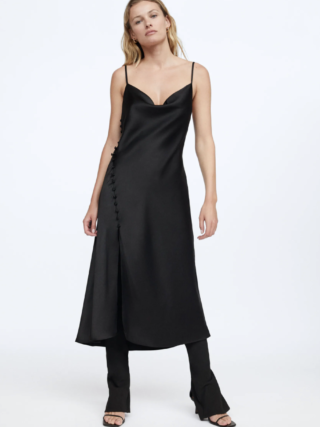
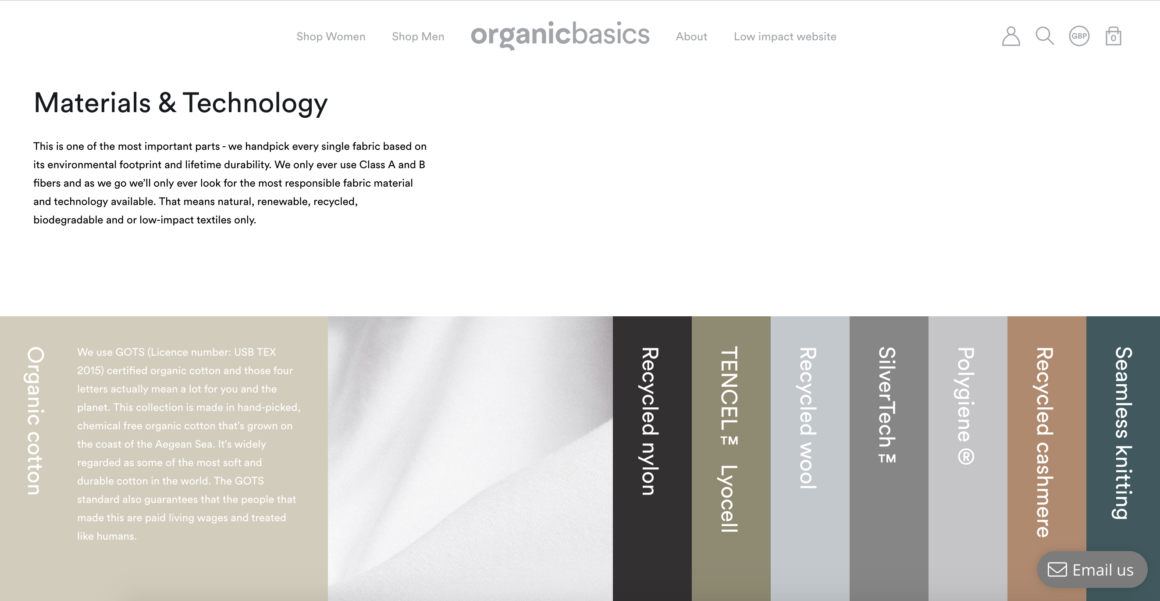
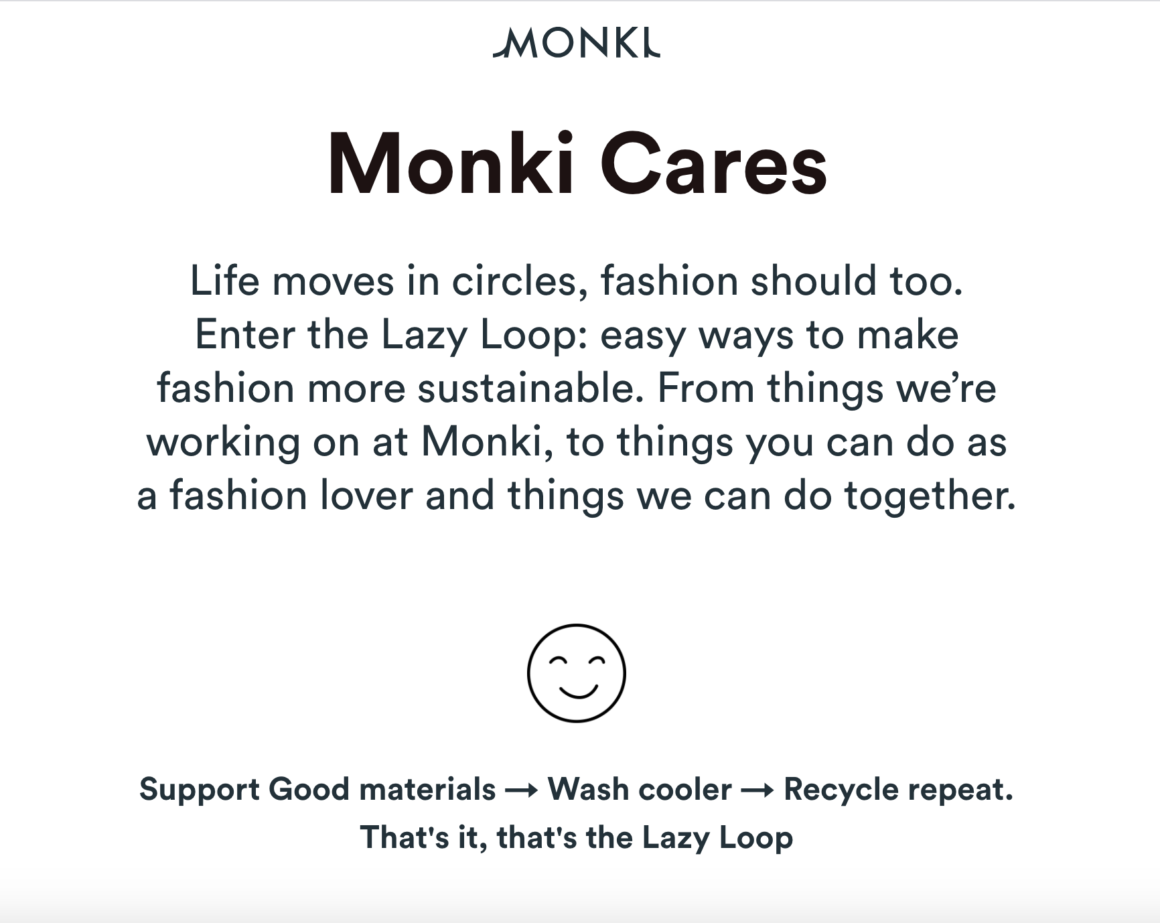









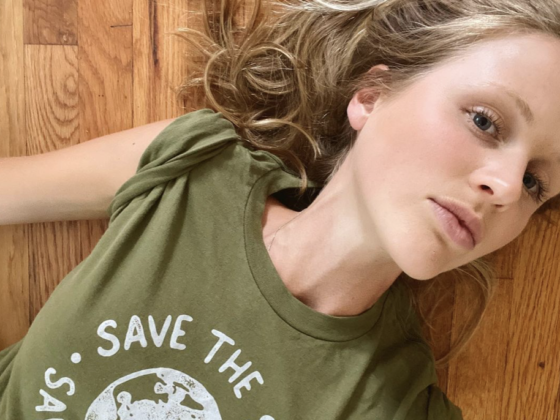
6 comments
AMAZING article! Thanks for sharing.
Thank you Tuhkana! We are really glad that you enjoy the reading. Have a lovely day!
Thank you Tuhkana, I’m glad you like it !!